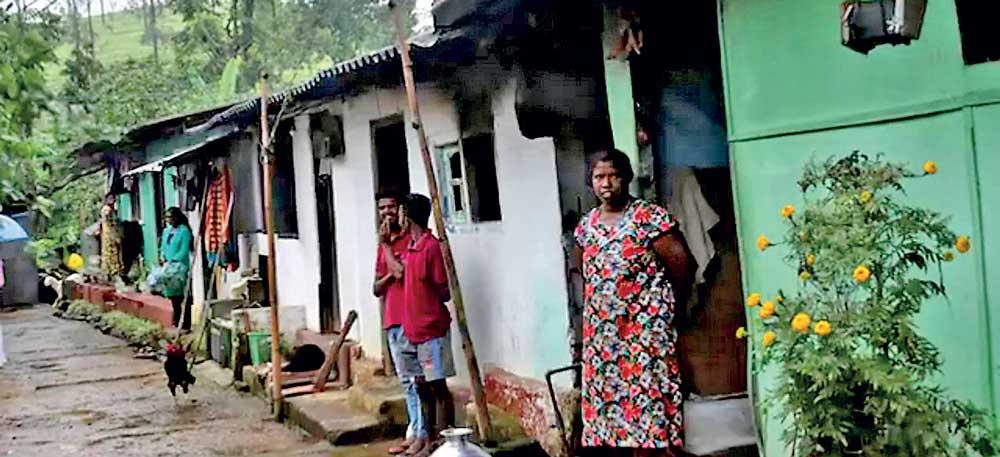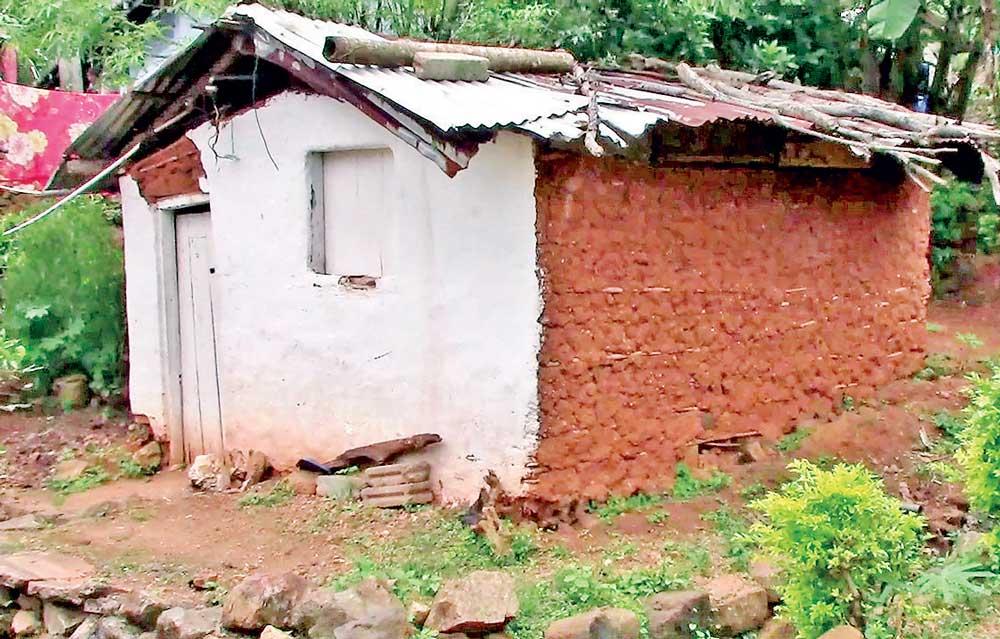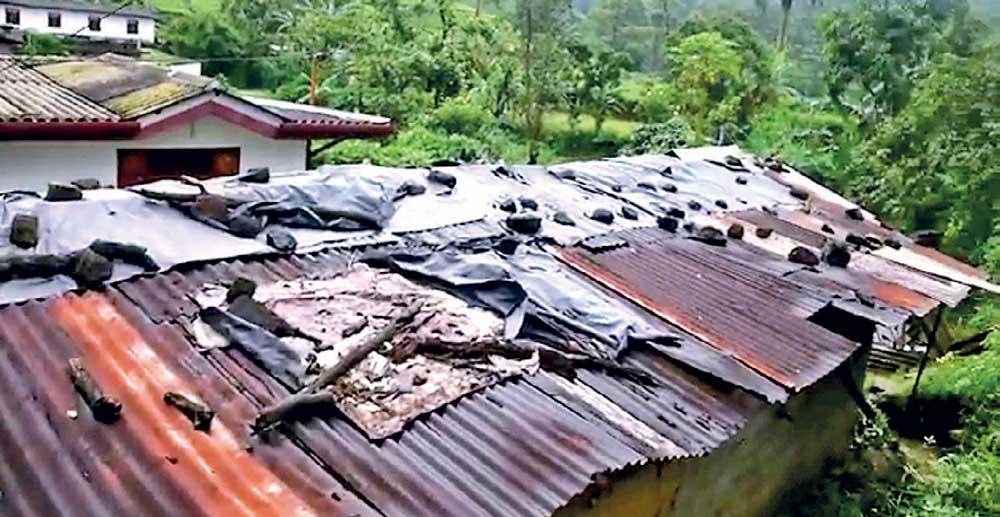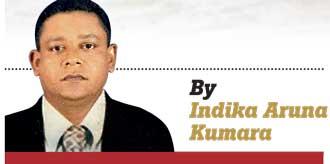08 Aug 2024 - {{hitsCtrl.values.hits}}

A survey conducted has revealed that the majority of the line rooms in estates are in a dilapidated condition and unfit to be human dwellings

Planters have been unwilling to transfer the ownership of line houses to the occupants or to encourage them to improve their houses

No steps have been taken to uplift their living standards or to provide these workers with better abodes
|
A recent survey revealed that 160,000 housing units are line rooms and temporary shanties that don’t have common amenities Another issue affecting the estate sector people is the step taken to abolish the estate hospitals and the service of the family health officer. Critics point out that it is high time that people in the estate sector should widen their thinking without being trapped in political dogmas The Estate Plantation Corporation manages 483 estates in 14 districts and 268 of them are in the hill county It is a matter of serious concern that workers have been confined to line houses provided by the British planters two hundred years ago |
|
Dhanaluxmee (38), a resident of Nagala estate in Matale |
 If the ability to perceive and enjoy the beautiful and excellent taste of a cup of tea could ever obliterate the distasteful story of the estate workers who have shed their honest sweat for more than 200 years to boost the economy, their life would have been rosier.
If the ability to perceive and enjoy the beautiful and excellent taste of a cup of tea could ever obliterate the distasteful story of the estate workers who have shed their honest sweat for more than 200 years to boost the economy, their life would have been rosier.
South Indian Tamil workers, who immigrated to Sri Lanka, have been compelled to suffer innumerable hardships among the luxuriant tea bushes.
It is a matter of serious concern that they have been confined to the line houses provided for them by the British planters two hundred years ago without being in possession of an inch of land of their own although they contribute largely to the country’s economy. Most of the line houses built in the early 1800s by the British planters are far away from the main roads and utility services for want of infrastructure facilities compelling them to live in seclusion apart from the society as a clan inferior to others in the society.
It is sad that no steps have been taken to uplift their living standards or to provide these workers with better abodes; even during the times when the estate sector economy flourished.
The line rooms of 10x 12 ½ dimensions were built by the British planters for male workers, but when their spouses joined them the line rooms served as makeshift houses.
The situation further deteriorated when the prices of tea in the World Market swindled in the 1960s, and the estate managements considered it as frivolous to invest in the industry.
However the planters were unwilling to transfer the ownership of line houses to the occupants or to encourage them to improve their houses. Due to the growth of population and the complexity of families resulted in extensions to the line houses or unauthorised shanties adjacent to them. The outcome was that they were compelled to live in an insanitary and squalid environment.
|
|
The population census in 2012 indicated that the estate sector population was 901, 647 and placed the number of housing units at 227,362. However, information regarding estate workers is maintained at estate management level. Hence it is not possible to form a precise Date Base on the subject. Meanwhile a survey carried out at estate level has revealed that 160,000 housing units are line rooms and temporary shanties that don’t have common amenities. They are occupied by more than 640,000 people. The survey has revealed that the majority of the line rooms are in a dilapidated condition and unfit to be human dwellings.
The Estate Plantation Corporation manages 483 estates in 14 districts and 268 of them are in the hill county. The majority of them are tea estates. It is hard to find any traditional villagers in the vicinity of these estates
Thirty (30) percent of plantations in the low country are either tea or rubber estates bordering the main highways and traditional villages. About 80 percent of workers in these estates are resident workers while the rest are from nearby villages.
According to the statistics of the Ministry of Estate Infrastructure, and Community Development for 01.01.2019 to 09.12.2019 the estate sector population in the Kalutara District was 128400 people, in the Kandy District 1476000, in the Matale District 522000, in the Nuwara Eliya District 768000, in the Galle District 1130000, in the Matara District 863,000, the in Badulla District 880000, in the Monaragala District 496,000, in the Ratnapura District 1,171,000, and in the Kegalle District 887,000.
In need of basic sanitary facilities
|
Velaudam Weerasingham, Labour Legal Officer |
Former Minister of Upcountry New Villages, Infrastructure Facilities and Community Development Palani Digambaran responding to a question raised in parliament by Parliamentarian Hesha Vithanage in 03,12, 2015 on tea estate workers, said, “According to the survey conducted in 2014, 81,904 families lived in 71653 single line rooms and 76305 families lived in 70229 double line rooms”.
The minister said that 14511 families lived in 14316 houses and that the above population included 233,421 children of school-going age.
He said 17 per cent of the families had been left without electricity and 45,070 families were in need of basic sanitary facilities.
A common question asked by the public not connected to these estate is ‘what is the present situation of the estate sector people’. S.Santhosam (42), an estate worker of Inguruwatta village in Ambanganga Division in the Matale District, who expressed concern about their ordeal said that the access road to the village had been in a dilapidated state and unfit for walking.
“We have been facing a predicament for want of drinking water or being forced to live in houses unfit for human dwelling, but our continual representations in this regard to the relevant authorities have felled on the deaf ears,” he said.
Dhanaluxmee (38), a resident of Nagala estate in Matale, said that they have been living in seclusion from the society.
“Nagala, Siripura is unknown to the officials. They ask us the location. We have been left without a fixed abode. The officers who visit the area wouldn’t at least peep into the line rooms and observe the trying conditions we are undergoing,” she said.
Kalimuttu Chandrakanthiya (39) is an estate worker in Nuwara Eliya. She underscored the danger of leopards (hill country leopards) and the wasps teeming in tea estates and other challengers encountered in surrounding shrub jungles.
“We are required to clear the rank vegetation while plucking tea leaves. It isn’t possible to pluck more than 20 kilos of tender leaves a day. If we fall ill we have to forego our daily wage,” she said.
The former General Secretary of Matale District Eksath Lanka Labourers’ Union and Labour Legal Officer Velaudam Weerasingham who has been dealing with the issues affecting the estate workers, stressed the need to form a Presidential Task Force to resolve the issues.
“Most of these issues emerged from the families due to the dependant mentality of estate workers. Politicians take the advantage. They are under the impression that they are entitled to various facility frees. This way of thinking has been thrust upon them by politicians. Usually the Tamil community in other areas live in amity with other communities and they are also well off. Another issue affecting the estate sector people is the step taken to abolish the estate hospitals and the service of the family health officer. It isn’t possible to foresee when they would be provided with drinking water and sanitary facilities.
The estate management still follows the concept of the British planters and expect only work,” said Weerasingham. “The dependants of estate workers, who died, are not in a position to make withdraws from the monies accumulated in EPF and ETF accounts for want of relevant documents. It is imperative that the government introduces a mechanism to release this money to another bank to enable the dependants to receive an interest or to raise housing loans.
“However, the present generation is intelligent and the Sinhala and Tamil politicians would not be able to hoodwink during the future elections. I expect them to use their vote at the up-coming elections without being misled,” he further said.
Meanwhile an experienced senior government official and the present Matale District Secretary Thejani Tilakaratne said the only way to uplift the lives of estate workers is to raise the standard of education of the children.
“Distributing dry rations or food is not the way to resolve their issues. We must not expect the next generation to work in estates as their parents did. It is rather difficult to change the attitude of parents, but the children, if they were provided a schooling, would march along the right path.
“We have implemented a plan with the help of Lyca Gnanam Foundation to improve the facilities in the estate sector. Particularly, the way of thinking should change. While providing enhanced education facilities to the children, the estate sector infrastructure facilities and the common amenities should be developed,” Tilakaratne said.
Critics point out that it is high time that the estate sector people should widen their thinking without being trapped in political dogmas.
27 Dec 2024 1 hours ago
27 Dec 2024 2 hours ago
27 Dec 2024 3 hours ago
27 Dec 2024 3 hours ago
27 Dec 2024 4 hours ago